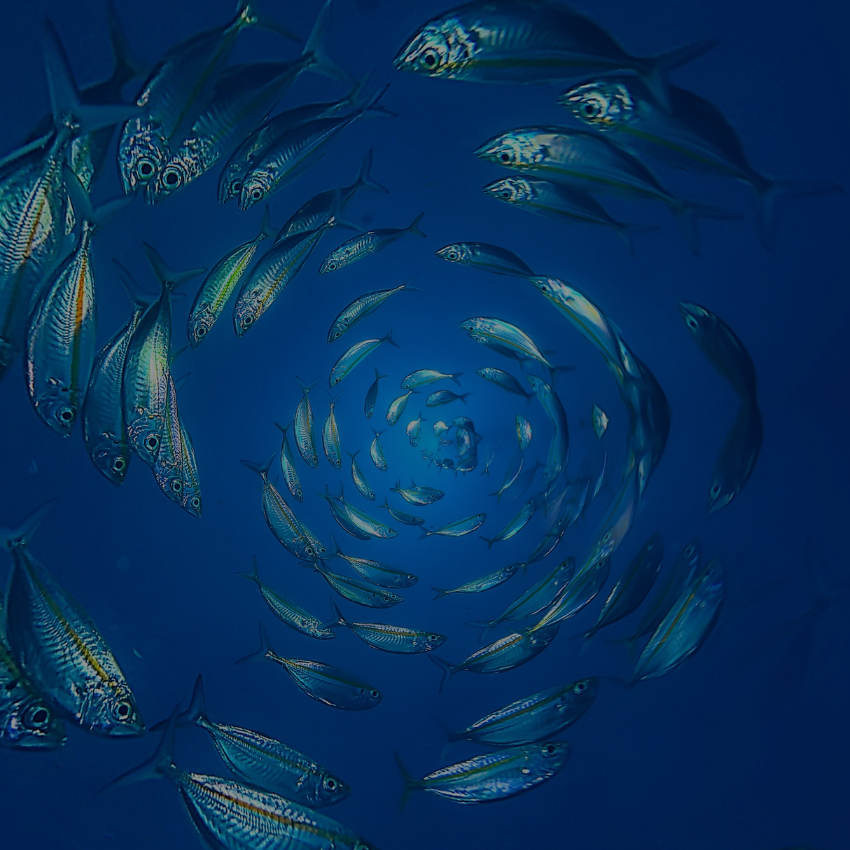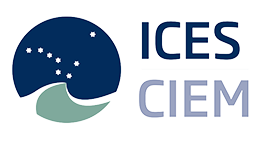Our seas and oceans are indispensable, not only regulating climate but also supporting billions of livelihoods and providing many other services and resources. Founded in 1902, the International Council for the Exploration of the Sea (ICES) is dedicated to advancing and sharing understanding of marine ecosystems and using this knowledge to generate state-of-the-art advice for meeting conservation, management and sustainability goals. The organization brings together a network of nearly 6000 scientists from over 700 marine institutes in ICES member countries and beyond.
Introducing ICES Library
As ICES grew and research outputs became increasingly diverse, the organization recognized the need for a more effective platform to enhance the reach and impact of its work. The existing system struggled to handle the variety of content and lacked the necessary flexibility and visibility.
In response to these growing demands, ICES chose Figshare to replace the previous platform and in March 2022 the ICES Library was launched. Figshare was chosen for its ability to integrate various content types and provide robust metadata, making research more discoverable and machine-readable. Since its launch, the research shared in ICES Library has surpassed a milestone of 1 million views.
Facilitating research and engagement
ICES Library is administered by the ICES Publications Team who are based at the Secretariat in Copenhagen. This small team are involved in a range of projects aimed at raising the profile of ICES research globally. The publications team support the editorial process for many research outputs, including reports, guidelines, and technical papers. This includes supporting the authors with deciding on their research output format and encouraging best practices, for example separating supporting research data from a PDF report as a separate csv. file so that it is independently findable, reusable and citable. They are also responsible for managing the guidance and resources for publishing items on ICES Library as well as coordinating its promotion with the communications team.
The publications team has been promoting the ICES Library amongst the large and global ICES network, highlighting the breadth and variety of research that could now be proficiently shared in the new platform.
The team is seeing significant advantages with the Figshare-powered repository in place at ICES. Their research is more accessible and discoverable, thanks to the inclusion of detailed metadata. Research outputs can be shared more seamlessly, with persistent identifiers that are trackable on social media and as citations. With the attribution of associated keywords, the research is easily findable by anyone browsing for relevant information. The team is particularly pleased with the ability to support the sharing, showcasing, and management of a variety of research outputs – from literature collections to software and online data portals – all published in a coherent and consistent way.
Highlighting impactful research
Working together with the communications team, the publications team highlights specific publications and series that shine a light on environmental pressures and opportunities with potential to impact government policies. Through the Altmetric integration in the Figshare interface, news and policy mentions of research are easily discoverable. For instance, the report on European Eel (Anguilla anguilla) throughout its natural range from 2022 was an extremely impactful piece of research that garnered over 5500 views and nearly 1000 downloads. Significantly, the Altmetric Attention Data highlights that the European Eel report has been widely discussed and mentioned across online sources, including 22 news outlets and in a policy document published by the Irish Department of Justice on the Ecological Sensitive Analysis of the Irish Sea. This kind of insight is invaluable to organizations like ICES that have a mission focused on global progress and sustainability.
Preserving and showcasing historical data
In addition to publishing their current and upcoming research outputs, ICES Library also supports the digitalization of the historical archive. ICES was first established in 1902 and as such a historical organization, it is important that the progress and journey of the research it’s produced is reflected in the digital era. The platform has helped the team bring the organization’s archive into focus, attributing it with interoperable metadata and increasing its discoverability beyond the physical record. For example, they have shared in ICES Library the programme and report from the second international Conference for the Exploration of the Sea held in Kristiania (Oslo) in 1901.
Looking forward
In April 2024, ICES Library surpassed the milestone of 1 million views of its published content. The publications team are excited to have navigated the long and complex implementation and roll out of the new ICES Library (owing to the historical and complex nature of the organization) and looking forward to doing more outreach to their expert groups to showcase the potential opportunities for publishing their research outputs in the repository. They are also looking forward to attending ICES Annual Science Conference in September 2024, where they will give a presentation on their work to date and encourage further adoption and engagement with ICES Library in the future.

